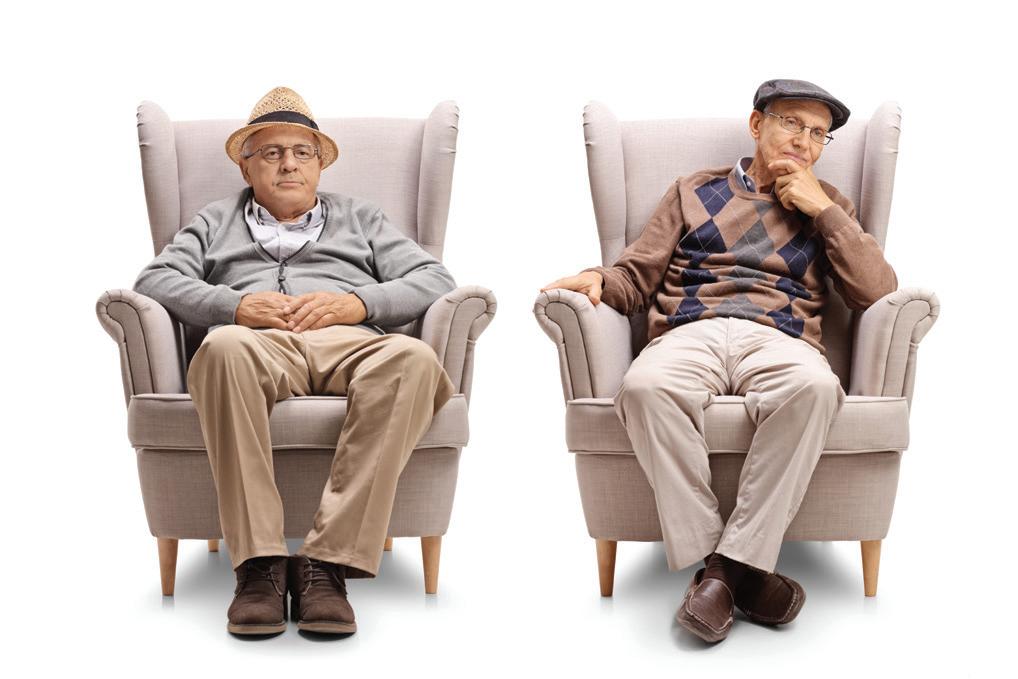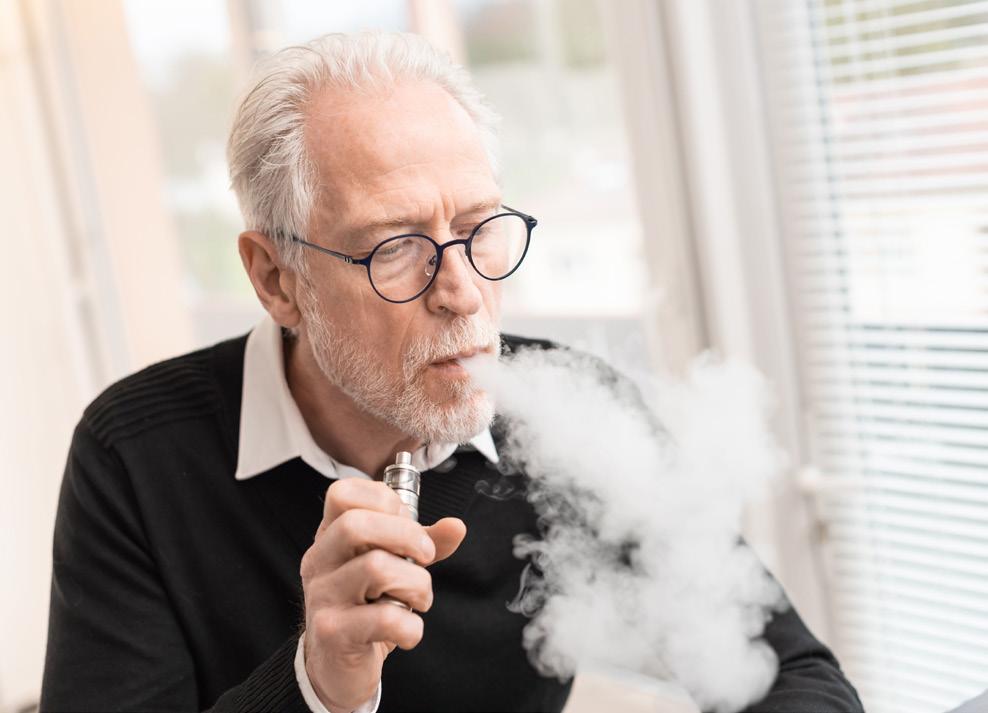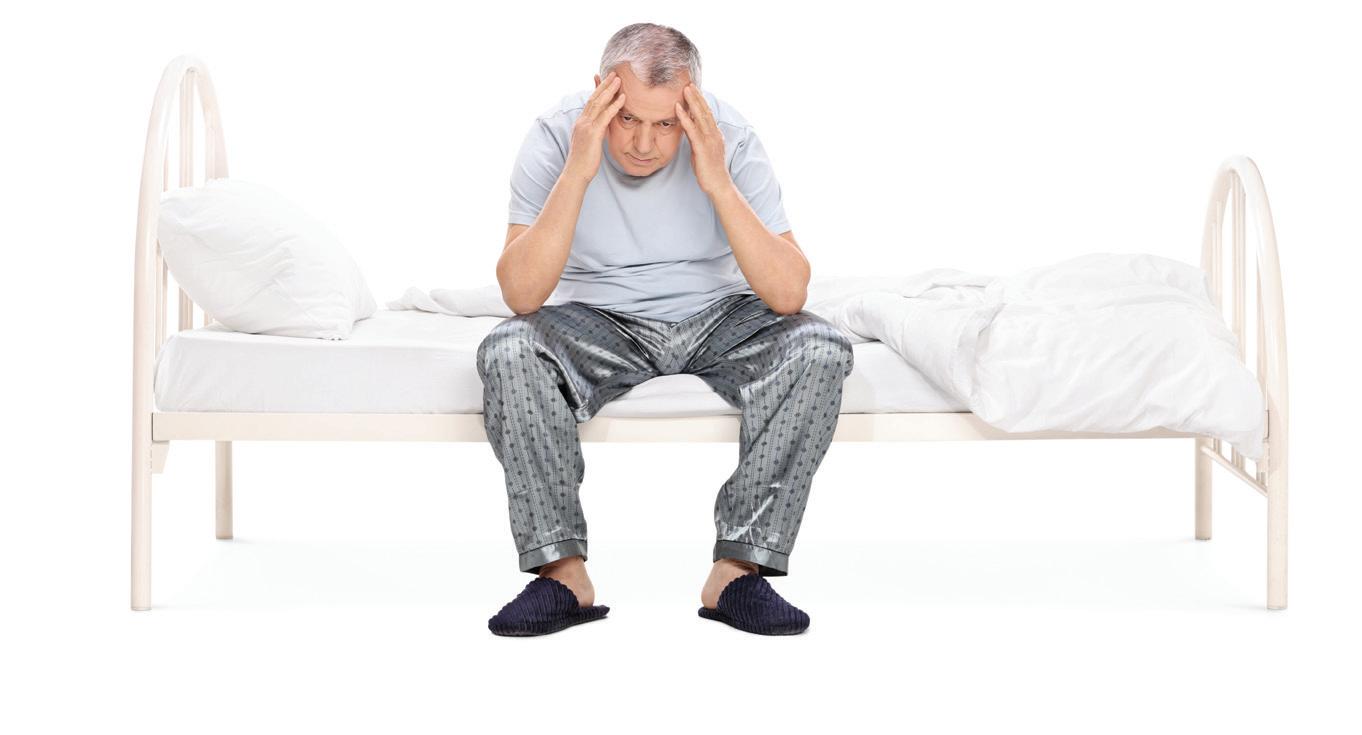
5 minute read
5 Ways to Improve Your Heart Health
Gila, an 84-year-old survivor from Bulgaria, sufers various pageailments along with dementia. For many years, she received a $700 monthly reparations allowance. In view of her mother’s degenerating state, Gila’s daughter Ronit requested an increased stipend from the government, but was turned down because they said Gila did not meet the necessary criteria. It never occurred to Ronit to try again, until she spoke to Linda Levy, one of Aviv’s consultants, who investigated the case and discovered that Gila had spent the war years in the ghetto in Sophia. Familiar with the updated rights due Holocaust survivors, she applied to various agencies including the Israeli Treasury and the German government. Te applications were approved, and Gila began to receive $2,000 monthly from the Israeli government, as well as a lump sum of $16,700 and another $90 monthly allowance from Germany. Tanks to the extra income, Ronit can now aford to give her mother the best care available including costly treatments to ease her health issues.
IN THE WAR IN UTERO
One of the more unexpected criteria for eligibility is “one who was a fetus at the time their mother sufered persecution by the Nazis.” Henia Klatsch, a survivor from Haifa, was born just two months after the end of World War II. Her parents had survived the Holocaust by hiding together with their two children in the home of a Polish family. Henia grew up with parents and siblings who emerged from the war alive in body, but severely scarred emotionally. After a turbulent childhood, Henia married Aryeh, also a Holocaust survivor.
A chance visit to the Aviv Entitlement Center in Haifa proved to be life-changing for the Klatches. Attorney Liora Zamir informed Henia that she might be eligible for Holocaust reparations due to her having been an unborn baby while her mother sufered persecution, and thus began a protracted bureaucratic process that included procuring several hard-to-get documents. “I wanted to give up a hundred times over, but Liora never let me,” Henia shares. “She fought like a lioness on my behalf! It’s only thanks to her caring, and her professional, devoted service that my application was eventually approved.” Te couple, which had previously subsisted only on Aryeh’s reparations, received a substantial fnancial boost. “A stone has been lifted from my heart,” Henia says. “I never had a childhood, but no one acknowledged my sufering before. Tis allowance is helping us make ends meet, and now I can even give something to our grandchildren, something that had not been possible before.”
Aviv for Holocaust Survivors works to raise public awareness of the rights of Holocaust survivors and to make that information freely accessible. Te organization operates 18 Entitlement Centers, in collaboration with local municipalities and the Jewish Federation of Los Angeles, to assist survivors in actualizing their rights. Aviv’s lawyers accompany survivors throughout the process, providing all services completely free of charge.
For more information, visit avivshoa.co.il.
Ways to Improve Your Heart Health
If you worry that you or someone you love will get heart disease or even have a heart attack, it’s understandable.
Heart disease is the leading cause of death for men and women in the United States, according to the National Heart, Lung, and Blood Institute (NHLBI).
Research shows you can lower your risk, particularly if you team up with family, friends or co-workers. This kind of social support may be the key to your success.
To mark American Heart Month in February, NHLBI, one of the National Institutes of Health, is inviting people across the country to team up and join #OurHearts, a national heart health initiative that encourages people to improve heart health together. “Studies show that having positive, close relationships and feeling connected to others benefts overall health, blood pressure, weight and more,” says NHLBI’s Dr. David Goff, director of cardiovascular sciences. Article courtesy of Family Features
CONSIDER THESE FIVE TIPS THAT CAN HELP LOWER YOUR RISK OF HEART DISEASE:
RISK: INACTIVITY Solution: Move more throughout your day. Aim for at least 150 minutes each week of physical activity. Build up to activity that gets your heart beating faster and leaves you a little breathless. If you’re busy, try breaking your daily activity into 10-minute chunks. Stay motivated: Make walking dates. Join a pickup soccer or basketball game. Join a ftness class with your neighbor. Grab a loved one and dance in your kitchen.

RISK: AN UNHEALTHY DIET Solution: Consider an option like NHLBI’s Dietary Approaches to Stop Hypertension (DASH) eating plan, which is free and scientifcally proven to lower high blood pressure and improve cholesterol levels. Stay motivated: Invite friends to cook up heart healthy recipes together. Start a lunch club at work and trade recipe ideas.
RISK: SMOKING, EVEN OCCASIONALLY Solution: Quitting can be benefcial to your overall health, even if you’ve smoked for years. Set a quit date and let those close to you know. If you’ve tried quitting in the past, consider what helped and what made it harder. Stay motivated: Ask your family and friends for support or join a support group. Find resources and connect with a trained counselor at 1-800-QUIT-NOW or smokefree.gov.


RISK: INADEQUATE OR POOR-QUALITY SLEEP Solution: Sleeping 7-8 hours each night helps improve heart health. Try going to bed and waking up at the same time each day. Getting a 30-minute daily dose of sunlight may also improve sleep. Stay motivated: Resist that late afternoon nap. Turn of all screens at a set time nightly. Relax by listening to music, reading or taking a bath.
RISK: UNCONTROLLED STRESS Solution: To help manage stress, try relaxation therapy and increase physical activity. Talk to a qualifed mental health provider or someone you trust. De-stressing may also help improve sleep. Stay motivated: Join a friend or family member in a relaxing activity like walking, yoga or meditation every day.
Learn about heart health and heart healthy activities in your community at nhlbi.nih.gov/ourhearts. Use #OurHearts on social media to share how you and your friends, colleagues or family members are being heart healthy together.











